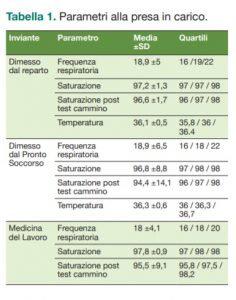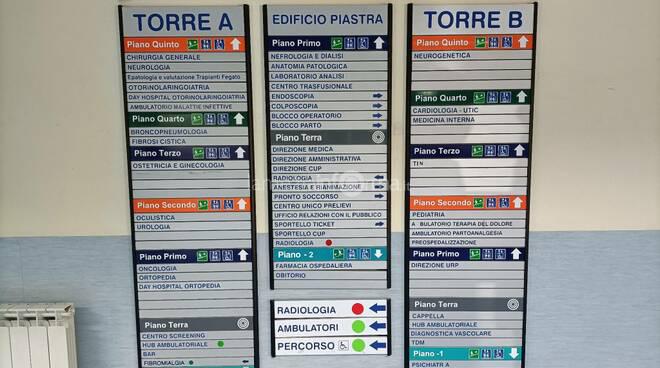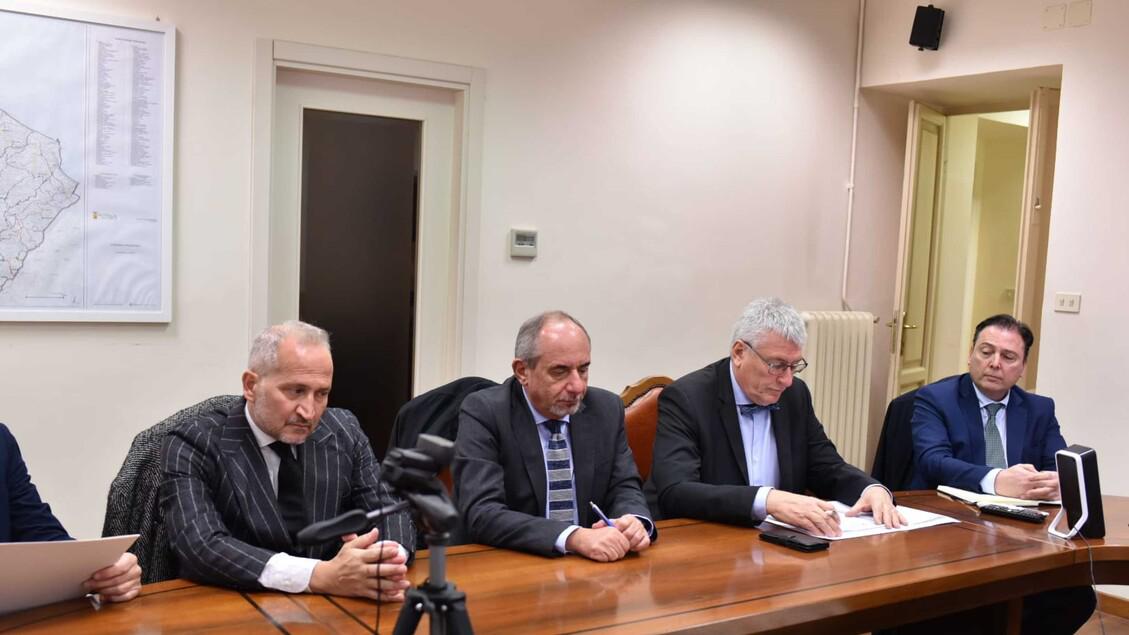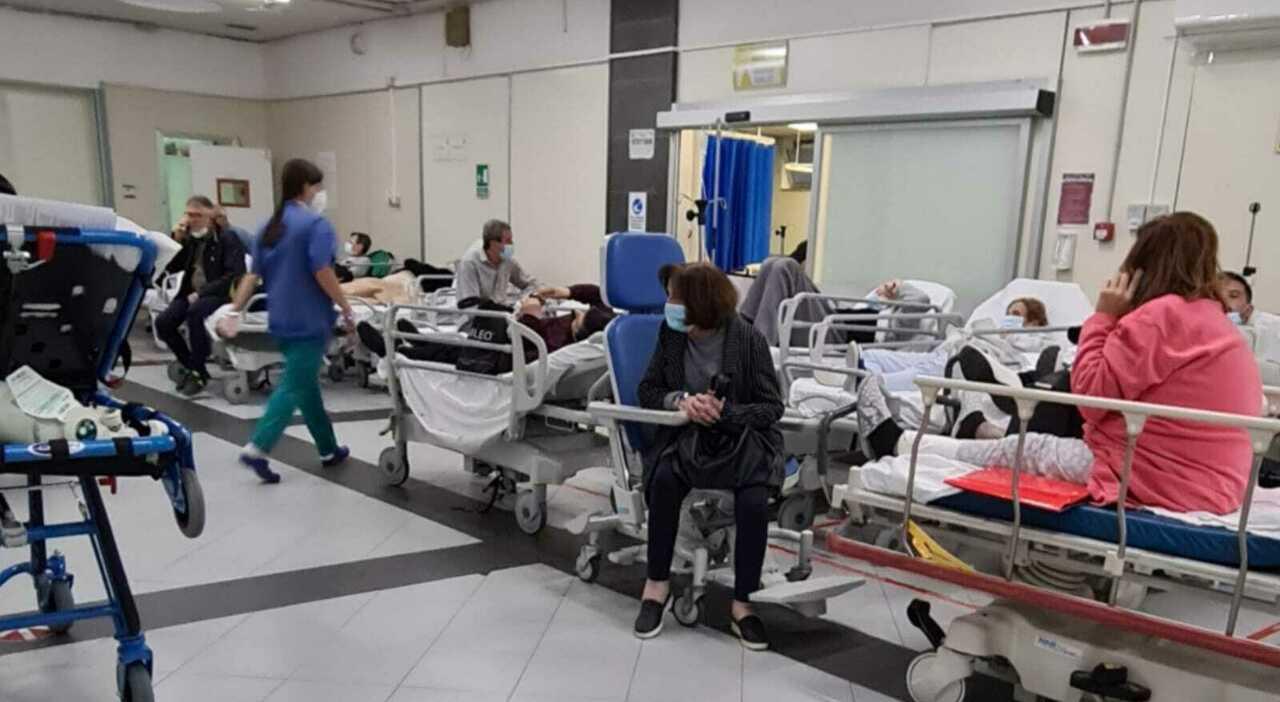Uil “Governo ripensi a politiche di inclusione sociale”
In a world increasingly defined by diversity and complexity, the call for effective social inclusion policies has never been more urgent. As organizations like UIL advocate for a rethinking of governmental strategies, the emphasis on creating equitable opportunities for all individuals has gained momentum. This article delves into the pressing need for the Italian government too reassess its social inclusion framework, exploring the deep-seated challenges many communities face and the potential transformative impact that renewed policies could foster. Join us as we uncover the nuances of this crucial dialogue, highlighting both the perspectives of those affected and the imperative for systemic change. Reevaluating Social Inclusion Policies for a Stronger Community Framework As communities evolve, so must the policies that govern them.It is essential to reassess our approach to social inclusion, ensuring it remains effective and relevant. Customary methods often cast a wide net but may inadvertently overlook the unique needs of marginalized groups. To address this,community stakeholders should focus on several key strategies: Engagement with Local Organizations: Collaborating with grassroots organizations can lead to tailored solutions that resonate with specific populations. Data-Driven Policies: Utilizing updated demographic and social data can definately help identify gaps in inclusion efforts and guide resource…
In a world increasingly defined by diversity and complexity, the call for effective social inclusion policies has never been more urgent. As organizations like UIL advocate for a rethinking of governmental strategies, the emphasis on creating equitable opportunities for all individuals has gained momentum. This article delves into the pressing need for the Italian government too reassess its social inclusion framework, exploring the deep-seated challenges many communities face and the potential transformative impact that renewed policies could foster. Join us as we uncover the nuances of this crucial dialogue, highlighting both the perspectives of those affected and the imperative for systemic change.
Reevaluating Social Inclusion Policies for a Stronger Community Framework
As communities evolve, so must the policies that govern them.It is essential to reassess our approach to social inclusion, ensuring it remains effective and relevant. Customary methods often cast a wide net but may inadvertently overlook the unique needs of marginalized groups. To address this,community stakeholders should focus on several key strategies:
- Engagement with Local Organizations: Collaborating with grassroots organizations can lead to tailored solutions that resonate with specific populations.
- Data-Driven Policies: Utilizing updated demographic and social data can definately help identify gaps in inclusion efforts and guide resource allocation.
- Feedback Mechanisms: Implementing channels for community feedback will create a more responsive policy-making habitat.
Moreover, fostering a culture of inclusivity requires ongoing education and awareness within the community. Initiatives that promote cultural understanding and empathy can serve as catalysts for change. As an example, community workshops focused on the benefits of diversity can bring residents together and encourage open discussions about inclusivity. Consider the following actions:
| Action Item | Expected Outcome |
|---|---|
| Monthly Inclusivity Workshops | Enhanced understanding and empathy among community members |
| Collaborative Cultural Events | Increased engagement and deeper connections among diverse groups |
Q&A
Q&A: Uil Calls for Rethinking Social Inclusion Policies
Q: What is the main concern raised by Uil regarding social inclusion policies?
A: Uil has expressed a pressing need for the government to reconsider its approach to social inclusion. The organization believes current policies are insufficient in addressing the diverse needs of marginalized communities and that a comprehensive reevaluation is crucial for fostering a more inclusive society.Q: What specific areas does Uil suggest need attention or reform?
A: Uil emphasizes the importance of enhancing access to education, employment opportunities, and social services for disadvantaged groups. They argue that existing policies often overlook the unique challenges faced by these communities, calling for targeted programs that promote equitable access and participation.
Q: How does Uil define social inclusion?
A: Uil defines social inclusion as the process of improving the terms for individuals and groups to take part in society. It encompasses ensuring that everyone, irrespective of their background, has access to vital resources, opportunities, and decision-making processes that affect their lives.
Q: Why is Uil calling for a rethink now?
A: uil’s call comes in light of ongoing social inequalities exacerbated by recent economic challenges and global events. They argue that stagnant or outdated policies fail to meet the current needs of vulnerable populations, and immediate action is required to address these disparities.
Q: What are the potential benefits of reformed social inclusion policies, according to Uil?
A: By implementing more effective and inclusive policies, Uil believes society can benefit from enhanced social cohesion, reduced poverty levels, and improved quality of life for all citizens.such reforms could lead to a more equitable and prosperous nation,where everyone has the possibility to thrive.
Q: Does Uil provide any recommendations for policymakers?
A: Yes, Uil suggests that policymakers engage with affected communities to understand their needs better and collaborate with NGOs and local organizations. They recommend creating flexible programs that can adapt to the evolving socio-economic landscape and ensuring that funding is adequately allocated to support these initiatives.
Q: What is the role of public dialogue in this process?
A: Public dialogue is seen as a vital component in reforming social inclusion policies. Uil advocates for open discussions that include various stakeholders—government, civil society, and the communities themselves—to foster a collective understanding of the barriers to inclusion and to devise effective solutions.
Q: How can individuals contribute to the push for better social inclusion practices?
A: Individuals can raise awareness, participate in community activities, and advocate for policy changes at local and national levels. Uil encourages citizens to engage with their representatives and support initiatives that promote social justice and inclusion.
Q: What is Uil’s vision for the future of social inclusion in Italy?
A: Uil envisions a future where all individuals feel valued and have equal opportunities to succeed. They aspire to see Italy as a forerunner in social inclusion, setting an example for other nations to follow in their pursuit of equality and justice for all.
to sum up
the Uil’s call for a reassessment of social inclusion policies serves as a crucial reminder of our collective responsibility to ensure no one is left behind. As we navigate the complexities of modern society, embracing diversity and fostering genuine inclusivity should not merely be ideals we aspire to, but actionable goals we strive to achieve. By prioritizing the voices of all citizens, and recognizing the multifaceted nature of social challenges, we have the potential to build a more equitable future for everyone. it is imperative that government leaders heed this clarion call and engage in meaningful dialogue and policy reform. Only then can we hope to create a society where every individual not only has a place but is also valued and empowered to thrive. The path forward is not just a political necessity; it is indeed a moral imperative that reflects the very essence of our humanity.
FAQ
In a important move that echoes the currents of historical reflection and societal values, the town of Salò has taken a bold step by revoking the honorary citizenship awarded to Benito Mussolini. Nestled along the picturesque shores of Lake Garda, Salò has frequently enough been a focal point in the narrative of Italy’s complex past, especially during the tumultuous years of World War II. This decision, while rooted in a reexamination of Mussolini’s legacy, prompts a broader conversation about the responsibilities of contemporary society in grappling with its historical figures. As we delve into the implications of this decision,it becomes essential to explore not only the reasons behind it but also the community’s desire to redefine its identity in the face of a legacy that has long been intertwined with controversy and conflict.
The Historical context of Honorary Citizenship in Salò
The concept of honorary citizenship has long been a symbolic gesture, often reflecting the values and ideals of a community. In the case of Salò, this practice gained notoriety during the Fascist era when Benito Mussolini was granted honorary citizenship for his role in shaping the town’s political landscape.This period was marked by profound social and political unrest, with local governance entwined with the overarching authoritarian regime. As such, the decision to honor Mussolini was not merely a recognition of his status; it indicated a complicity with the broader national agenda, wich sought to establish a unified identity under Fascism.
The implications of repealing Mussolini’s honorary citizenship today resonate deeply within the current socio-political climate in italy and beyond. The decision highlights a growing awareness and reevaluation of historical narratives, urging communities to confront their pasts. Key points surrounding this context include:
- Reconciliation with history: Acknowledging the complexities of the Fascist legacy.
- Local Identity: Reinforcing a sense of community values that reject totalitarianism.
- Symbolism in Governance: The role of municipal actions in shaping public discourse.
To further illustrate, the following table outlines key events leading to the revocation of Mussolini’s honorary citizenship:
| year | Event |
|---|---|
| 1924 | Granting of honorary citizenship to Mussolini |
| [1945 | Fall of fascism in Italy |
| 2023 | Revocation of honorary citizenship by Salò |
Understanding the Decision to Revoke Mussolini’s Honorary Citizenship
The recent decision to revoke Mussolini’s honorary citizenship by the comune di Salò represents a significant shift in the public perception of historical figures associated with controversial legacies. This action reflects an increasing awareness and acknowledgment of the impact that past rulers and their ideologies have had on society. In modern Italy, these decisions are often influenced by a desire to confront historical injustices and to foster a more inclusive and respectful civic environment. Authorities are taking measures to ensure that the values they uphold align with contemporary societal principles, thus emphasizing the importance of reconciling history with current ethical standards.
Moreover, several factors contributed to this decision, including the ongoing debates about nationalism, fascism, and their consequences during the 20th century. Points of consideration include:
- Historical Context: Revisiting the implications of Mussolini’s regime on Italian history and society.
- Public Sentiment: Growing opposition to fascist ideologies within modern demographics.
- Civic Obligation: A commitment to promote values that unite rather than divide communities.
In light of these developments, local governments are increasingly tasked with addressing the legacies of controversial historical figures.The process requires a delicate balance, hence the establishment of a framework for assessing such honors in the future can be beneficial. This could include:
| Criteria | Implications |
|---|---|
| Impact on Society | Evaluating how a figure’s actions shaped social dynamics. |
| Historical Narrative | Recognizing differing perspectives in historical accounts. |
| Cultural sensitivity | Understanding the importance of honoring diverse communities. |
These steps not only encourage a critical examination of history but also aid in moving toward a more thoughtful and inclusive future for all. The resolution from Salò’s municipality serves as a reminder that civic honors can and should reflect the values of a society committed to justice and equality.
Implications for National Identity and Historical Memory
The revocation of honorary citizenship for mussolini by the comune of salò signifies a profound shift in how national identity is framed in contemporary Italy. This decision challenges the pervasive symbols and narratives associated with fascism that have lingered in Italian society. By rescinding this honor, Salò takes a decisive step towards redefining its historical landscape, prioritizing a collective identity rooted in reconciliation and democratic values. This act prompts an introspection regarding the legacy of past regimes, urging citizens to confront uncomfortable truths while fostering a dialog about the nation’s future.
Moreover,the implications for historical memory are immense. Communities may begin to reassess how they commemorate their past, possibly leading to a broader cultural movement that transcends local boundaries. vital considerations include:
- Re-evaluation of Monuments: Debates surrounding monuments dedicated to controversial figures could gain momentum.
- Education Reform: Curricula might be updated to include critical analyses of fascist history, promoting a more nuanced understanding among younger generations.
- civic Initiatives: Local governments may invest in programs that encourage citizens to engage with history through museums and public discussions.
This reevaluation of identity and memory not only reflects a rejection of divisive legacies but also seeks to foster unity through collective remembrance. In an era of rising nationalism worldwide, Salò’s actions may serve as a precedent for other cities grappling with similar histories, balancing pride in cultural heritage with a commitment to democratic ideals.
Recommendations for Future Commemorative Practices in Salò
In light of the recent decision to revoke the honorary citizenship of Benito Mussolini in Salò, it is essential to rethink and reshape commemorative practices within the community. Rather than simply erasing the past, the focus should shift towards creating educational initiatives that promote critical engagement with history. This can be achieved through:
- Public Workshops: Facilitate discussions on historical context, consequences of totalitarianism, and democratic values.
- Cultural Programs: Develop arts and music events that celebrate local resilience and diversity.
- Historical Tours: Offer guided tours that include a narrative surrounding the period of Fascism and its implications in modern society.
Furthermore,commemorative practices should actively invite different perspectives to foster a sense of inclusivity and shared understanding. A proposed initiative could involve establishing a Commemoration Committee tasked with assessing how history is presented in public spaces. This committee could oversee the installation of memorials that honor the victims of oppressive regimes, ensuring that public memory is both reflective and forward-looking. Possible features might include:
| Feature | Description |
|---|---|
| Victim Memorials | Dedicated spaces that commemorate those who suffered under the regime. |
| Interactive Exhibits | Installations that allow residents and visitors to engage with historical narratives. |
| Community Dialogues | Regular forums for residents to discuss and reflect on historical narratives and their present-day implications. |
Q&A
Q&A: The Revocation of Honorary Citizenship of Mussolini by the Municipality of Salò
Q: What recent decision has the municipality of Salò made regarding Mussolini?
A: The municipality of Salò has officially revoked the honorary citizenship that was previously granted to Benito Mussolini, the former leader of fascist Italy.
Q: Why did salò choose to take this action now?
A: The decision reflects a growing sentiment within the community to confront the historical implications of Mussolini’s legacy, particularly in light of ongoing discussions about nationalism and fascism in contemporary society.
Q: What factors contributed to the revocation of Mussolini’s honorary citizenship?
A: Multiple factors played a role, including rising awareness of the historical injustices linked to fascism, public pressure from local activists, and a desire to redefine the town’s identity in a more inclusive and democratic manner.Q: How did the local community respond to the decision?
A: Responses within the community have been mixed. While many residents and activists celebrated the revocation as a necessary step towards reconciliation, some individuals expressed concern that it might diminish Salò’s complex historical narrative.
Q: What will be the next steps for the municipality following this decision?
A: following the revocation, local leaders have indicated plans to engage in educational initiatives that promote understanding of the town’s history, along with cultural events aimed at fostering dialogue and reflection on the impacts of fascism.Q: is this decision part of a larger trend in Italy regarding Mussolini’s legacy?
A: Yes, the revocation is part of a broader movement seen across Italy, where several municipalities are reevaluating historical symbols and honors associated with Mussolini as they confront the country’s past and its implications for current societal values.
Q: Are there any legal implications arising from this decision?
A: Legally, the revocation does not appear to involve significant ramifications, as honorary citizenship is symbolic rather than granting any formal rights. Though, it does open the door for further discussions about commemoration and accountability in relation to Italy’s historical figures.
Q: How does this revocation reflect on the future of discourse surrounding fascism in Italy?
A: The decision signifies a willingness to engage critically with the past and encourages a discourse that seeks to acknowledge historical injustices, promoting a future that prioritizes democracy, human rights, and vigilance against totalitarian ideologies.
Q: What can we expect to see moving forward in salò and similar towns?
A: Moving forward, it is likely that Salò will focus on creating a more inclusive community dialogue and reflection, while other towns may follow suit, leading to broader discussions on the implications of historical commemorations and the responsibilities of local governance in addressing complex legacies.
Closing Remarks
the decision by the Comune di salò to revoke the honorary citizenship granted to Benito Mussolini marks a significant moment in the ongoing discourse about history, memory, and identity.This act serves not only as a reflection of contemporary values but also as a reminder of the complexities that cities and nations grapple with when reconciling their pasts. Salò, a town synonymous with a tumultuous chapter of italian history, has taken a step that may resonate well beyond its borders, inviting citizens and leaders alike to reflect on the legacies we choose to honor or disavow. As we navigate the narrative of history,let us consider the lessons such decisions bring forth; the choices we make today will sculpt the identities of tomorrow.
Jean-Noël Barrot en visite à Alger, après huit mois de crise entre la France et l’Algérie
Jean-Noël Barrot’s visit to Algiers marks a pivotal moment, symbolizing a thaw in the icy relations between France and Algeria. After eight months of tension, this diplomatic engagement signals a renewed commitment to dialogue and cooperation.
Re Carlo e la regina Camilla arrivati a Roma
King Charles and Queen Camilla have arrived in Rome, embracing the historic city’s rich heritage. Their visit highlights continued diplomatic ties and cultural exchange, as they engage with local leaders and explore Italy’s timeless treasures.
Tunisia-Ue: in vigore nuove regole per facilitare l’export
Tunisia and the EU have rolled out new regulations aimed at streamlining export processes. These changes aspire to enhance trade efficiency, fostering a robust economic partnership that boosts Tunisia’s market accessibility within Europe.
Dazi Usa, Fissolo (Moderati): “L’Europa deve uscire dall’immobilismo. Bisogna diversificare l’export”
Dazi Usa, Fissolo (Moderati) emphasizes the urgent need for Europe to break free from its stagnation. He advocates for a strategic diversification of exports, suggesting that a broader market approach could reinvigorate the continent’s economy and global standing.
济宁支持倍耐力,”20 年的承诺
In a meaningful collaboration, Jining supports Pirelli’s “20 Years of Commitment,” a testament to unwavering dedication and innovation. This partnership symbolizes a shared vision for sustainable development and excellence in manufacturing, paving the way for a brighter future.
Sanità, Nursing Up punta il dito: “Alla Città della Salute si ignorano gli OSS in attesa di assunzione: basta immobilismo”
In a call for action, Nursing Up highlights the plight of waiting healthcare support workers (OSS) at Città della Salute. They demand an end to the stagnation and urge for prompt hiring to ensure patient care isn’t compromised. Time for change is now.
Un enviado papal a Ucrania, con cuatro ambulancias
A papal envoy has arrived in Ukraine, bringing with him four ambulances as a gesture of compassion amidst the ongoing conflict. This humanitarian aid aims to provide crucial medical support to those affected, embodying a commitment to peace and assistance.
Agguato in una strada di Milano, imprenditore di Moncalieri ferito con due colpi di pistola
In a shocking incident on the streets of Milan, a Moncalieri entrepreneur was left injured after sustaining two gunshot wounds. The attack, which occurred in broad daylight, raises serious questions about urban safety and targeted violence. Authorities are investigating.
Ottant’anni di libertà: tra memoria e festa
On the occasion of “Ottant’anni di libertà: tra memoria e festa,” we reflect on eight decades of liberty that shaped our identity. This celebration of remembrance and festivity invites us to honor the struggles and strides made for freedom, fostering a deep appreciation for the past.
Macron a Moscú, “basta de tácticas dilatorias”
As tensions escalate, Macron’s call to Moscow emphasizes the urgent need for decisive dialogue. “Enough with the delaying tactics,” he states, urging for actionable discussions in the face of global uncertainty. Time for clarity, not ambiguity, is now.
Cybersecurity, Urso firma intesa Mimit-Acn a tutela di imprese e pubblica amministrazione
In a significant move to bolster cybersecurity, Urso has forged an agreement between Mimit and Acn aimed at safeguarding both businesses and public administration. This collaboration marks a step forward in strengthening Italy’s digital resilience against evolving threats.
莫赖斯法官遭到博尔索纳罗的攻击,同事们表示声援
Judge Moraes has come under fire from former President Bolsonaro, igniting concern among his colleagues. In a show of solidarity, fellow judges have rallied to support Moraes, emphasizing the importance of judicial independence in the face of political pressure.
Area ex Westinghouse: per la Giunta il progetto va avanti
The Westinghouse area redevelopment project is moving forward, as confirmed by the local administration. Plans for revitalization signal a new chapter, promising to transform the landscape while addressing community needs and future growth.
German industrial production fell by 1.3%
German industrial production experienced a decline of 1.3%, signaling potential challenges within the nation’s manufacturing sector. This downturn reflects broader economic uncertainties, prompting stakeholders to reassess growth strategies in light of fluctuating demands.
Emofilia, una malattia rara su cui occorre maggiore sensibilizzazione
Hemophilia, a rare bleeding disorder, often remains in the shadows, overshadowed by more common ailments. Greater awareness is essential to ensure those affected not only receive proper care but also find understanding in their communities.
Mayores bancos, diálogo ante el caos de los aranceles
In the face of turbulent tariff storms, leading banks are stepping into the fray, advocating for dialogue over discord. Their calls for open communication seek to navigate the complexities of global trade, aiming to stabilize markets and foster economic cooperation.
Dodik, we want to join the Serbia-Hungary military agreement
In a surprising turn of events, Bosnian Serb leader Milorad Dodik has expressed a desire for his region to join the Serbia-Hungary military agreement. This development raises questions about regional dynamics and security alliances in the Balkans.
Verso la nuova area commerciale di Porta Susa
“Verso la nuova area commerciale di Porta Susa” marks a significant transformation in the heart of the city. This vibrant development aims to blend modern retail with historical charm, fostering a dynamic hub for shopping and community interaction.
Vaticano e Rússia discutem guerra e troca de prisioneiros
The Vatican and Russia engage in pivotal discussions, exploring the complexities of war and the sensitive exchange of prisoners. This dialogue aims to bridge divides, fostering a glimmer of hope amidst ongoing tensions and humanitarian concerns.





